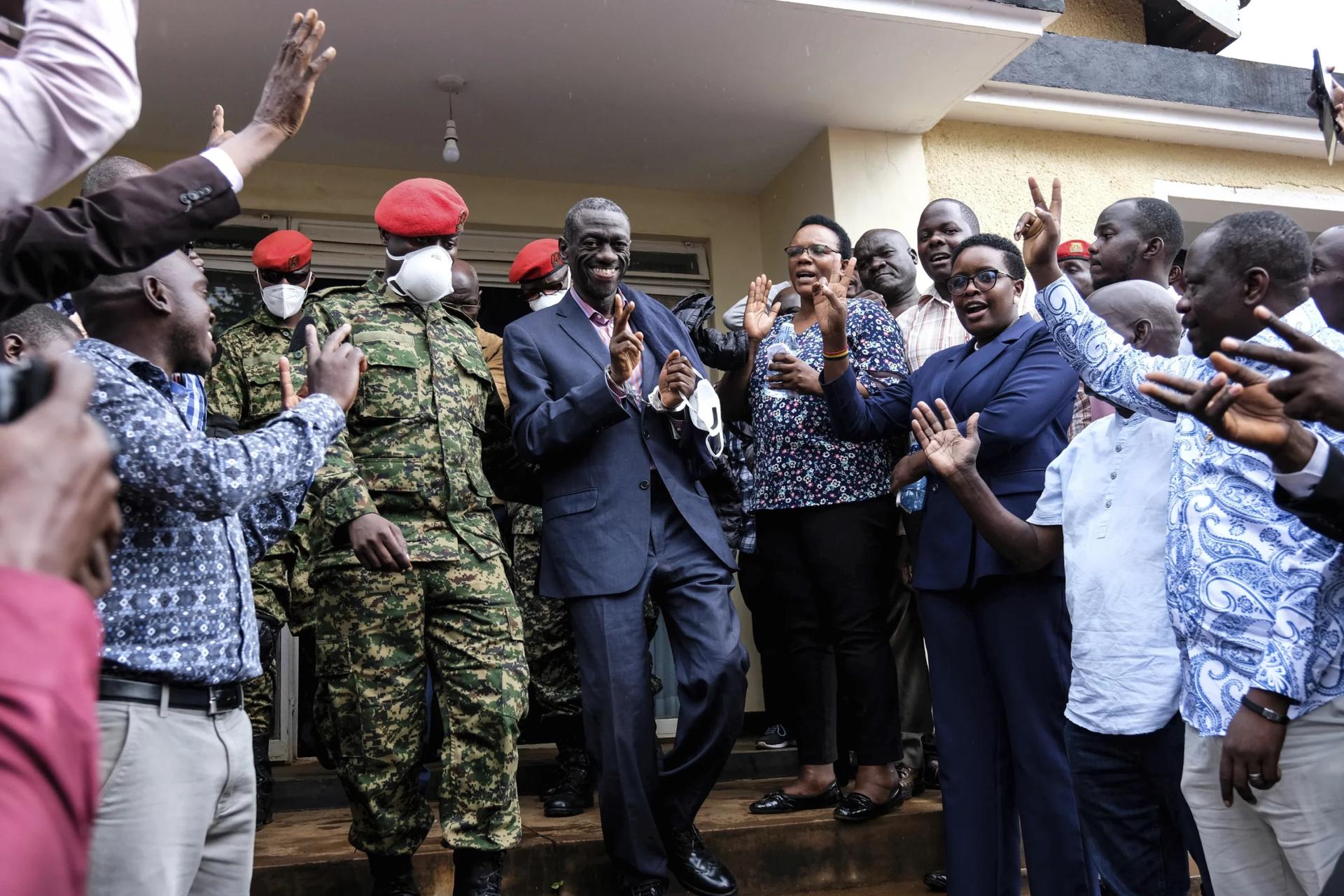YAOUNDÉ, Cameroon – A leading Catholic priest in Uganda has spoken out about Uganda’s political transition, explaining that the country seems to have shifted from a republic where leaders are voted, to a kingdom where transition is hereditary.
Father Robert Ochola-Lukwiya the parish priest of Angal Parish and Chancellor of Nebbi Catholic Diocese in Uganda told Crux that the prevailing political discourse in the East African country today is about father-to–son succession.
“In Uganda, power rests firmly in the hands of the ‘big man’,” the Comboni missionary said.
“Succession has become a common topic of discussion, often framed as the son inheriting leadership from the father. It resembles a dynasty or kingdom, rather than a republic where leaders are chosen through democratic elections,” the priest said. “This is the unfortunate reality Ugandans have come to accept.”
President Yoweri Museveni, who has been in power for nearly four decades, has faced speculation about his son, General Muhoozi Kainerugaba, potentially succeeding him. Muhoozi, a high-ranking military official, has gained prominence in Uganda’s political landscape, fueling debates about whether Uganda is shifting toward a hereditary leadership model rather than a democratic transition.
Ochola-Lukwiya said protests against such a transition, though justified, are often met with brutal violence and bloodshed, leaving many Ugandans resigned to submission.
“This, as I see it, is the state of affairs,” he said.
He further talked about gross human rights violations in a country that isn’t at war like its neighbors: The DRC and Sudan.
“While we may speak of the absence of war, the reality remains that our people continue to be killed,” the priest told Crux.
“Politically motivated extrajudicial killings, military violence, forced disappearances — these atrocities persist. Individuals are detained in secret locations, transported in unmarked vehicles — commonly referred to in Uganda as ‘drones’ — and held in unlawful detention centers where they endure torture and other forms of inhumane treatment,” Ochola-Lukwiya said.
The issue of rights violations was also highlighted by the Catholic Bishops’ Conference of Uganda in their March 2025 Pastoral Letter in which they blasted the government for involvement in egregious human rights violations.
“A government that does not respect the rights of its citizens to exercise their freedom through associational and other legitimate means is said to be undemocratic,” the bishops said, recalling the “dark days” when the right to speak or to assemble was anathema in the East African country.
They didn’t mention President Idi Amin, who came to power through a coup by ousting Milton Obote in 1971. During his rule that lasted until 1979, Amin killed at least 300,000 people.
“We have noticed, over the years, some worrying trends reminiscent of those dark days,” the bishops said.
They condemned the stifling of political party activities through laws such as the Public Order Management Act, as well as the sustained attacks and excessive regulation of human rights and governance-related organizations which they argued “has created fear and made it difficult for them to operate”
The bishops spoke about the rising phenomenon of political prisoners and detainees in Uganda.
“Security agencies are accused of arresting, detaining, torturing and abducting people dissenting voices without due process of the law. These actions reflect a troubling pattern in our politics. Many families do not seem to know the fate and whereabouts of their missing loved ones. Family members, victims, relatives and friends have expressed frustration in attaining justice. Most disturbing has been the trial of civilians in military courts, including political prisoners,” the statement said.
The bishops urged the government to respect the Supreme Court Order to transfer all of such cases to civilian courts.
They said it was necessary for Uganda to occupy a place among democratic nations “where respect for divergent views and beliefs, political leadership as service, and opposition as partners in development, is entrenched.”
Ochola-Lukwiya said that Uganda may not present the worst case scenario, but noted that every country deserves the best especially when it is within the means of the state to provide.
“However, when this right is denied, when it is undermined by nepotism, rampant looting, corruption, embezzlement, and the lack of accountability for perpetrators, the situation becomes dire,” he told Crux.
“These [corrupt] individuals continue to enrich themselves at the expense of ordinary citizens. Such actions are not only unjust but also profoundly immoral and sinful,” the Comboni missionary said.
These concerns are arising as the country prepares for general elections next year. Ochola-Lukwiya doesn’t seem to see how the election would be of help to ordinary Ugandans.
“There is no meaningful build-up to it—apart from politicians campaigning and voters waiting for handouts from these politicians. Ideally, whether viewed from the church’s perspective or the state’s, there should be ongoing civic education throughout the year to empower citizens, helping them understand their rights and responsibilities. Unfortunately, this is not the case,” he said.
He blasted politicians, particularly parliamentarians, for often focusing on recovering the money spent during their campaigns rather than engaging with their constituents.
“Political rallies before elections, where communities gather to discuss topical issues, receive feedback from their representatives, or deliberate on bills in parliament, are virtually nonexistent,” the cleric said.
“The focus is skewed towards those canvassing for elections rather than addressing the needs of ordinary citizens,” he added.













